Elvin Laceda from the Lubao 2nd Ward (Congregation) in the Lubao Philippines Stake (Diocese) is making leaps in spreading his advocacy of food security and financial stability within the farmer's community as a recently selected Young Farmers Sector representative at the United Nations Youth Advisory Board Philippines and the founder of agri-solutions company RiceUp.
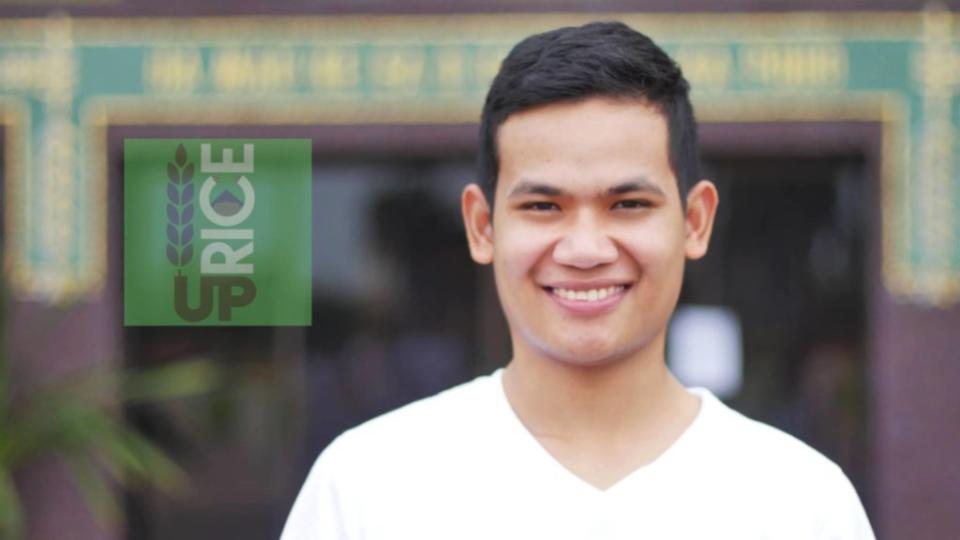
Carrying with him the teachings of the gospel and heavily inspired by the value that The Church of Jesus Christ of Latter-day Saints places on both temporal and spiritual self-reliance, Elvin started his company with the goal of helping local farmers achieve financial stability through education.
Elvin’s unique upbringing as the grandson of a farmer and as a member of the Church greatly influenced his advocacy and his life’s pursuit as he strives to share the gospel through his words and his deeds as he tries to create positive change in the world through his work.
A farmer’s grandson
Elvin’s grandfather has had a massive influence on his life and the field of work that he has chosen to immerse himself in. Growing up, he was raised by his grandfather, who taught him the value of hard work through his good example as a farmer. Seeing farmers and fisherfolk work close to him and his grandfather within the community shaped his view on the industry, as he was taught from an early age to love and respect the people who bring food to the table.
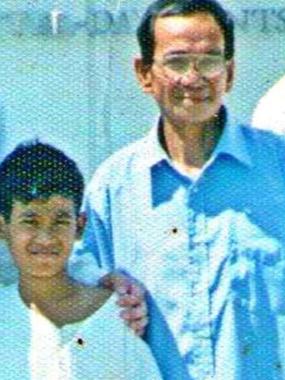
At eleven years old, he was baptized into the Church. He and his grandfather were the only members of the Church in the family, and despite his grandfather’s humble vocation as a farmer, he loved to study the scriptures. A year after his baptism, his grandfather died, but because of his example and through the help of his community and the members of the Church, he grew up strong in the Church.
Elvin is grateful for all of the people who raised him and regards everything that he now has as the result of the kindness of his community. He recalled, “Since early on in life, I have been a recipient of the generosity of many people. I regard whatever I have now and whatever I will have in the future as many, many people contributing to my success.”
Eventually, Elvin would go on to serve a full-time mission, where he was assigned to Cagayan de Oro. Going on his mission served to heighten his awareness of the plight of farmers and fisherfolk when he was assigned to serve in a depressed area.
In spite of the poverty that he witnessed, he saw the potential of the communities he served in to become prosperous both materially and spiritually and decided that he would use what he learned in his mission and the higher education that he would receive to give back to the farmers that his grandfather had taught him to love.
“You can only connect the dots looking back. It’s all connected,” says Elvin about how his early life experiences have directed his trajectory in life.
Giving Back
After serving his mission, Elvin would go on to study agriculture engineering from 2011 to 2013 in Brigham Young University – Hawai’i (BYUH). This education gave him the insights and the skills that he would soon need to build RiceUp.
At the time, Elvin saw a unique opportunity in a competition called Great Ideas hosted by the university. He would go on to win this competition by submitting the idea for a mobile app called RiceUp, which would enable farmers to sell their produce directly to consumers for a fair price, granting them freedom from middlemen who would take advantage of them.
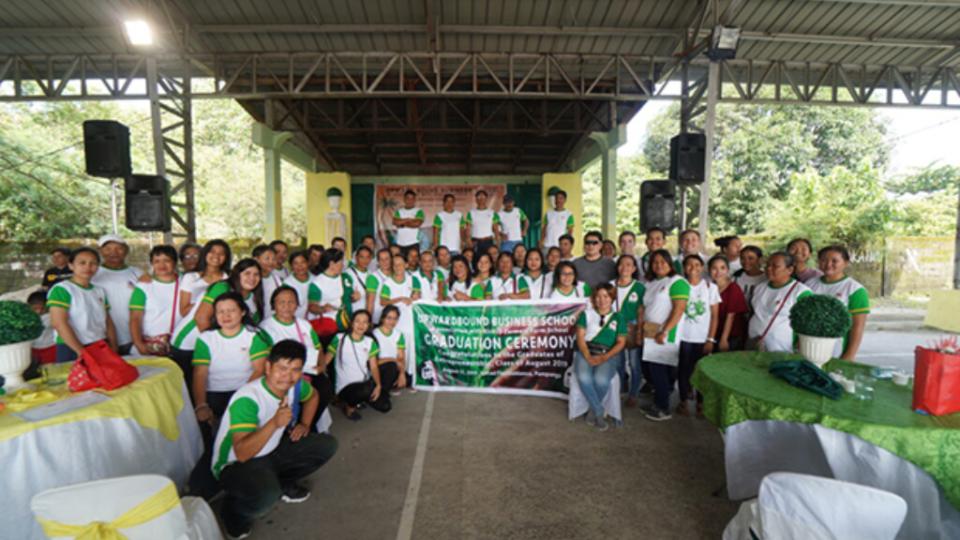
Using the winnings from the contest, he and his team put in the work to make their concept into a working business based in Pampanga. The idea evolved from being a mobile app into an agri-solutions company as he and his team fleshed out the idea and assessed how best to operate the business and give back to the community.
At present, RiceUp stays true to its central message of freeing farmers from poverty and ignorance. Remaining faithful to the original idea presented in the Great Ideas competition, RiceUp connects farmers directly to the market, allowing them to name their own price for their produce, giving them more financial power, and liberating them from exploitation by the middleman. RiceUp also provides zero-interest loans to the farmers without collateral in cooperation with the government, liberating them from exploitation by loan sharks.
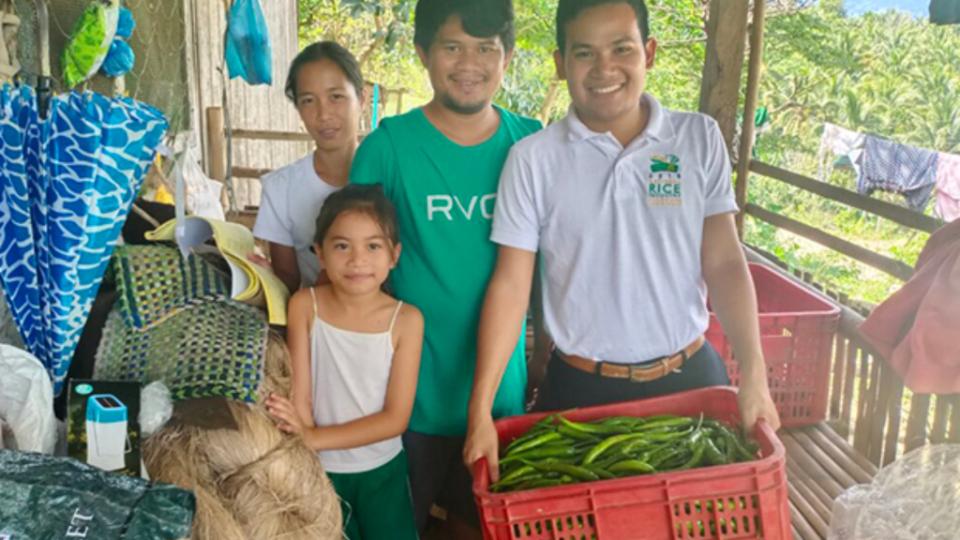
The holistic agri-solutions startup teaches farmers in the communities it has reached out to how to take steps toward financial stability and freedom through a three-month education program in farm schools. Elvin shared the goal of the farm school, “We teach shared prosperity, not individual. We are a community of farmers helping each other.”
In the program, farmers are taught entrepreneurial skills with the goal of encouraging them to become agricultural entrepreneurs, and building a supportive community.
The curriculum that RiceUp uses was inspired by the Church’s own self-reliance programs and by Elvin’s time as a facilitator in his ward’s self-reliance program. He said, “The curriculum we created is actually influenced and inspired by the self-reliance program of the Church. What we teach among our farmers is mostly inspired by the self-reliance program... Self-reliance is a big, big factor in what we do.”
Elvin shares that of the two thousand farmers his startup is helping, only one is a member of the Church. Regardless of this, Elvin relays how he is able to share the message of the gospel through the business’s initiative.
“We influence them through the Light of Christ to change things in their lives. The first lesson that we teach in our farm school is about family and creating family-oriented goals... We help farmers understand that they are connected with the divine and we help them understand that they are connected with the community,” Elvin said.
An advocacy inspired by faith
Recently, Elvin was selected as a Young Farmers Sector representative to the United Nations Youth Advisory Board which is an initiative by the United Nations in the Philippines to give young people from different sectors a voice and a platform through which to give advice to the policy- and program-making leaders of the United Nations.
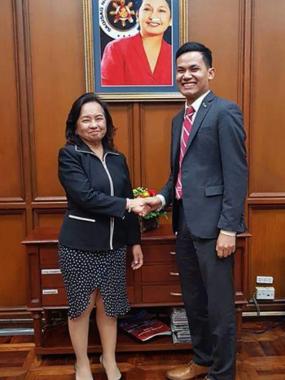
As a representative to this board, Elvin provides a young person’s perspective to leaders who create policies and programs as to how these policies and programs may affect the youth of the sector that he represents. “My mission is to share the voice of the rural youth. The biggest demographic among the youth is the rural youth and most of them are not represented because most of them are not connected to the internet or social media. I will make sure that those young marginalized people – children of farmers – have a voice in the policies that the UN in the Philippines is planning.”
As a member of the advisory board, Elvin is responsible for making sure that policymakers are not out of touch with the rural youth that they make policies and programs for, and that these policies create lasting good for the demographic that he represents.
He shares that he chose this advocacy to dedicate himself and his work because he saw how fragile peace is in a community without food security. According to Elvin, poverty, conflict areas, and marginalized communities affect a person’s ability to absorb religious matters and faith. He related how as a missionary, the message of the gospel that he and his companions bore was a second priority to the people that they taught, whose first priority was securing food for their family in a day.
“It’s very vital to have a self-reliant family to be able to absorb the teachings of the gospel. What our faith teaches us is very influential to my decision in building up RiceUp and representing this advocacy to the UN. I see myself until now as a missionary, although I don’t wear a badge anymore,” Elvin reflects.
Elvin recounts the story of how he brought RiceUp to a conflict area in the mountains of Davao which has suffered from armed conflict for over forty years. Despite the strife and tension in the area, he recognized the beauty and the potential it had for its farmers, and through the farm school education provided by RiceUp and with collaboration from the government, Elvin and his company were able to enrich the lives of its farmers by teaching them the value of community and the development of cocoa and coconut crops.
At present, there are twenty-eight RiceUp communities and over 1200 farmers working in the once-conflict-ridden area of Davao where he was inspired to bring his work. “Looking back, I am grateful that I make difficult choices. What’s the point? Peace, prosperity, and the gospel of Jesus Christ are interconnected. People will see the light and they are willing to change.”
A difficult but necessary work
“It’s very difficult. Especially when you are doing good things, the opposition is also working,” Elvin states.
His commitment to improving the station of Filipino farmers is difficult work, and he has often run into danger and opposition in his line of work. Elvin relays how in his work to give better opportunities to farmers, there are people who stand to earn less, and that there are people whose political agenda are threatened by what he is doing.
Of this, Elvin recounts, “I’ve been in danger. I’ve felt it become real in the past months. I have also been a victim of misinformation and fake news. It’s very important for fellow members of the Church, even young people, to realize the importance of truthful sharing because misinformation can destroy people.”
Despite this, Elvin’s grasp on his faith remains strong. He reflects on the relationship between his difficulties and his faith, “My faith has helped me understand that opposition is needed in all things. It helped me navigate this kind of industry in such a way that I cannot be stopped by the opposition... When you try to build something good, the opposition will try to create things that hamper your growth, but I think because of those challenges, I am now better. I learned... My faith has helped me.”
Elvin was fully aware of the dangers that he might be facing but says that whenever he runs into doubts about the work that he is doing, he always comes back to the reason he set out on this path.
“The big why is not me. The big why is the people. When I’m faced with challenges, I always ask myself why. Why am I doing this?”
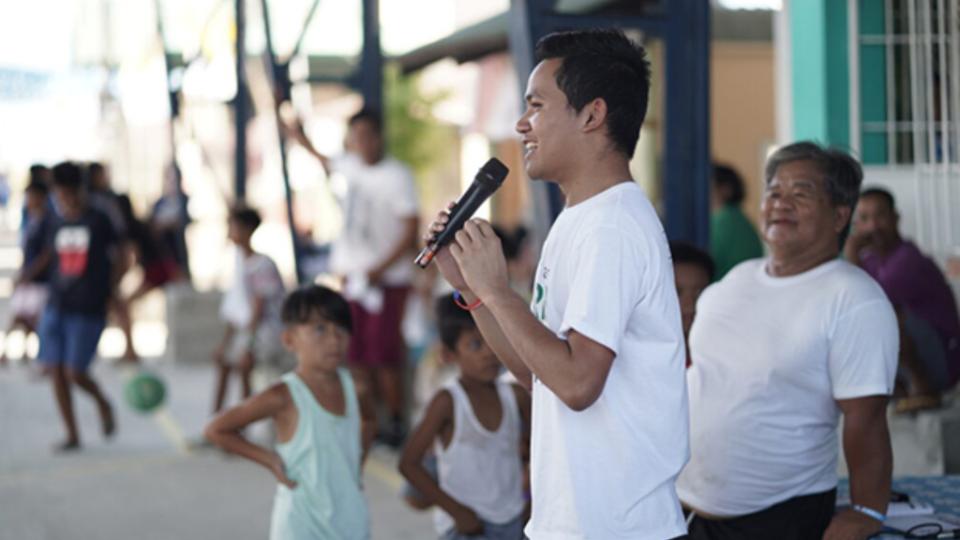
A word of advice to the youth and a testimony
Elvin strongly encourages the youth to engage themselves with the Church’s self-reliance programs. As stated, RiceUp was largely inspired by the Church’s emphasis on temporal and spiritual self-reliance and was based on its self-reliance programs and curriculums in part. He echoes the importance of self-reliance and shares that self-reliance enables not only the self but also others.
He says about the Church’s self-reliance programs, “Joining a self-reliance training can enable young people to see what they value in life, and when they see what they value in life, they can make better decisions because of those values... When you have a proper mindset you can do things that enable not only you to rise up, but enable you to rise up with others.”
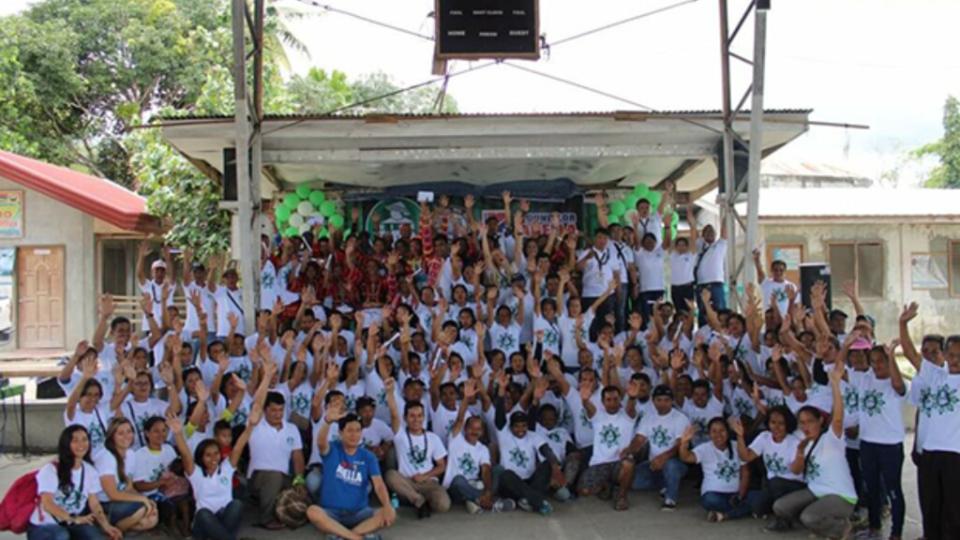
Elvin also encourages the youth who want to be engaged in good causes and advocacies to continue to work for change and for the community. He said, “Making the world a better place starts within our families and our communities, but it cannot start if we are not aware of our communities’ needs and what we are capable of.”
He recalls how the Church teaches its youth to be observant and sensitive to their surroundings like the prophet Mormon and to empathize with people in the same way.
“My advice to the young single adults of the Church is to continue being aware of their surroundings. We do not exist just for ourselves or our families. We exist because someone out there is praying for our help... How sweet it is when you discover that you are an answer to someone’s prayers.”
Elvin was most eager to share his testimony of Jesus Christ, “Jesus Christ has been my example. I always remember the scriptures where Jesus Christ always sought the poor, the needy, the downtrodden, and the sinner. He always sought the outcast. I know I am one of those outcasts. He wants us to be better not only for ourselves but also for others.”
Looking forward, Elvin will continue to work on his startup and his advocacies as a representative of the UN Youth Advisory Board.